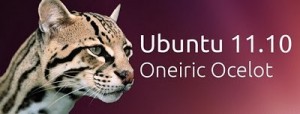Our next interviewee is Ubudog, a name that should be familiar to those who frequent the Ubuntu Forums. He is particularly active in the support areas helping all he can. Ubudog is also heavily involved with the development of UbuMonkey, which describes itself as “A lightweight, fast web browser for the modern Linux desktop.”
1. Tell as much as you’re willing about your “real life” like name, age, gender, location, family, religion, profession, education, hobbies, etc.
My name is Michael, and I am a freelance software developer.
2. When and how did you become interested in computers? in Linux? in Ubuntu?
I first became interested in Linux back in 2007. I was using Windows Vista then, and I was looking for an alternative. I found out about Ubuntu, a user friendly Linux OS. I tried it, and I’ve been using it ever since.
3. When did you become involved in the forums (or the Ubuntu community)? What’s your role there?
I became involved in the Ubuntu community back in 2009. I joined the Ubuntu Forums. At first, I had to always ask questions about the CLI, etc, but now I love to help out new users solve the same problems I once had.
4. Are you an Ubuntu member? If so, how do you contribute? If not, do you plan on becoming one?
I became an Ubuntu member in June 2011. I contribute the most to the Ubuntu Forums, and I am normally online in my spare time.
5. What distros do you regularly use? What software? What’s your favorite application? Your least favorite?
I regularly use Ubuntu, but I like to try out the latest Linux distros.  My favorite application has to be Firefox. With all the add-ons available, support community, etc, it’s one of my favorite tools.
My favorite application has to be Firefox. With all the add-ons available, support community, etc, it’s one of my favorite tools.
6. What’s your fondest memory from the forums, or from Ubuntu overall? What’s your worst?
My fondest memory of the UF has to be the community cafe. I’ve had many laughs there, it’s a great place to meet other members of the community and have lighthearted discussions.
7. What luck have you had introducing new computer users to Ubuntu?
I’ve had much luck converting people to Ubuntu. In my case, people like most being able to try Ubuntu out before installing it. (LiveCD) People are really amazed to see how much faster/simpler Ubuntu is.
8. What would you like to see happen with Linux in the future? with Ubuntu?
I hope to see Linux grow and be adapted by more users. I hope to see Ubuntu’s community expand and to see users from all aspects of life.
9. If there was one thing you could tell all new Ubuntu users, what would it be?
The one thing I would tell new Ubuntu users is: Don’t be afraid to ask. There is a huge, friendly community out there and someone has an answer. There is no such thing as a stupid question.
Originally Posted here on 2011-09-24
